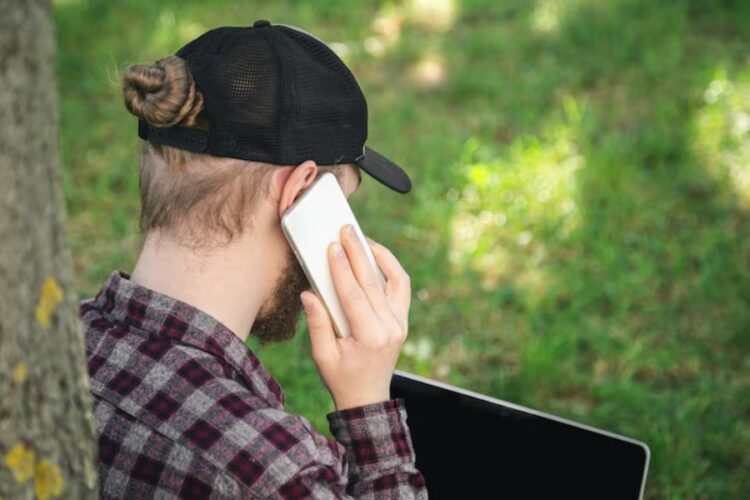 In modern society, individuals voice concerns about digital privacy and misuse of technology on a consistent basis. Many people worry about unauthorized recordings and question whether they possess grounds to sue someone for recording them without permission. Arizona, unique in its approach to privacy laws, presents a specific framework that outlines rights and restrictions when it comes to recording conversations or interactions.
In modern society, individuals voice concerns about digital privacy and misuse of technology on a consistent basis. Many people worry about unauthorized recordings and question whether they possess grounds to sue someone for recording them without permission. Arizona, unique in its approach to privacy laws, presents a specific framework that outlines rights and restrictions when it comes to recording conversations or interactions.
This article examines Arizona’s legal environment regarding unauthorized recordings, personal privacy rights, and the available avenues for legal recourse. Readers receive an in-depth look at statutory provisions, key legal terms, recent case statistics, and practical steps to follow if a situation arises where someone records them without consent.
Can I sue someone for recording me without my permission in Arizona?
Yes, individuals may pursue legal action if they can show that unauthorized recording violated their privacy rights and they experienced harm as a result. Protecting one’s personal privacy entails meeting specific legal criteria and providing adequate evidence of damages. Consulting legal counsel ensures proper compliance with state laws and helps decide whether pursuing a civil claim holds merit based on circumstances.
Understanding Arizona’s Recording Statutes
Arizona imposes clear guidelines for sound and video recording practices. The state permits recordings when at least one party to a conversation consents. If a person participates in the conversation, they automatically grant consent to record that conversation. However, recording individuals who have a genuine expectation of privacy—such as in private locations or conversations not designed for public consumption—often falls outside the law’s acceptance.
Arizona’s privacy laws derive from a combination of statutory provisions and common law precedents that protect individuals against intrusions into their private lives. Courts consider several factors when analyzing a case, including the location of the recording, the context in which it occurs, and the presence of any explicit or implicit consent. Arizona law does not treat unauthorized recording lightly when it falls on an individual who enjoyed a reasonable expectation of privacy.
Moreover, unauthorized recording might prompt claims not only for privacy violations but also potential claims related to emotional distress, defamation, or breach of specific contractual or workplace privacy policies. Many lawsuits hinge on whether the person recording had legal justification or whether their actions constituted a breach of the privacy expected in settings such as a personal home, therapy session, or other private meeting areas.
Arizona Law Versus Recording in Public Places
Many scenarios create confusion about whether a public space carries the same expectation of privacy as a private venue. Arizona law typically presumes that individuals in highly visible or accessible environments, such as parks or open streets, relinquish a degree of privacy. Nonetheless, even in public areas, some recordings can cross into illegal territory when the recording intentionally captures private discussions or uses methods that intrude deeply into personal matters without consent.
For example, recording someone in a secluded corner of a restaurant while they engage in a private conversation might violate their privacy rights if the recording device was used surreptitiously. This risk extends to workplaces or other settings where an individual may reasonably expect that their conversation remains confidential.
The Legal Grounds for a Civil Lawsuit in Arizona
Individuals who feel wronged by unauthorized recordings usually consider filing civil lawsuits that claim an invasion of privacy. Courts evaluate these claims under several legal theories, and a common approach involves identifying whether there was an intentional intrusion into private affairs. The following legal claims may apply in the context of unauthorized recording:
• Invasion of Privacy – A person may argue that a recording violated their right to privacy when made in circumstances where they expected to remain unseen or unheard by unauthorized parties.
• Intentional Infliction of Emotional Distress – Claimants might allege that the covert nature of the recording caused significant psychological or emotional harm that merits compensation.
• Breach of Confidentiality – In some cases, recordings occur in contexts where confidentiality proves necessary, such as during professional consultations or legal discussions. Breaching confidentiality may expose a person to civil liability.
• Violation of Wiretapping Laws – Although Arizona permits one-party consent for recordings, situations arise where recordings may still violate wiretapping or surveillance laws if they cross other boundaries defined by statutory or common law.
Establishing a strong case demands that the plaintiff prove both the unauthorized nature of the recording and the actual damages incurred. Courts require solid evidence to support claims, and the process often involves reviewing digital evidence, witness testimonies, and any contextual indicators that validate the claimant’s privacy expectations.
Table 1: Key Arizona Statutes on Recording and Privacy
| Statute/Provision | Area of Focus | Consequences/Penalties |
|---|---|---|
| Arizona Revised Statutes §41-1122 | Consent for electronic communications | Criminal penalties; fines for violation |
| Arizona Revised Statutes (common law) | Invasion of privacy / intrusion into seclusion | Civil liability, compensatory damages for harm |
| Arizona Consumer Protection Statutes | Misuse of personal information | Financial penalties; potential punitive damages |
| Local Ordinances and Court Rulings | Specific settings and additional privacy safeguards | Varied penalties based on jurisdiction |
Each provision clarifies acceptable circumstances for recording conversations. While Arizona law allows a certain level of recording with one participant’s consent, courts scrutinize violent breaches of privacy when recordings occur in spaces where consent remains ambiguous or entirely absent.
Privacy Expectations and Exceptions
Legal viewpoints on recording revolve around the expectation of privacy. An individual typically holds a reasonable expectation of privacy when they believe their communication remains confidential. In cases where the recording involves secure, non-public interactions, courts are more receptive to claims of privacy infringement and emotional distress.
When considering an unauthorized recording incident, legal authorities often ask: Did the recorder have the authority to capture the conversation? Did the recording occur in an area where the plaintiff allowed a close-circle recording or did it unfold in a secure, private context? Answering these questions requires careful fact assessment.
Privacy agreements, employment contracts, or even established norms within a family or social group may all affect one’s perceived privacy and influence whether a court finds a violation. Even if a conversation happens in a setting that normally might not impose high confidentiality standards, the method and intention behind the recording become critical in adjudicating such cases.
Recent Cases and Data on Unauthorized Recordings in Arizona
Data from local law enforcement and civil records reveal that unauthorized recordings have attracted considerable legal attention in recent years. The rise in mobile technology usage has expanded the number of cases where individuals allege harmful recording practices, pushing courts to interpret traditional privacy laws in light of modern technology.
One investigation by a local legal review center found a 15% increase in privacy-related lawsuits over the past five years. Such cases underscore the legal challenges both parties face when an incident involving unauthorized recording escalates. Cases involving workplace recordings, personal encounters, or even public disturbances find their way to trial rooms where each incident undergoes granular legal scrutiny.
The following table presents a snapshot of unauthorized recording cases reported in Arizona cities over recent years:
Table 2: Unauthorized Recording Cases in Arizona by Year
| Year | Reported Cases | Percentage Change from Previous Year |
|---|---|---|
| 2018 | 56 | N/A |
| 2019 | 64 | +14% |
| 2020 | 72 | +12.5% |
| 2021 | 85 | +18.1% |
| 2022 | 91 | +7.1% |
| 2023 | 97 | +6.6% |
Note that these numbers derive from local legal resources and surveys of law firms specializing in privacy rights. Although the law remains consistent, the manner in which attorneys present evidence and digital content has evolved, reflecting the increased reliance on electronic devices and social media platforms.
Comparison with Other States’ Privacy and Recording Laws
Different states maintain varied perspectives on recording without consent. Many states impose two-party consent rules, which require all involved parties to agree before any recording. In contrast, Arizona permits one-party consent when the person recording participates in the conversation. These contrasting rules spur discussions on the compatibility of privacy rights with advancing technology.
For example, California enforces stricter regulations. Courts there often view unauthorized recordings, especially in personal settings, through a lens that weighs player’s trust and the right to seclusion. New York adopts a dual approach that requires consent under specific circumstances, particularly during private conversations where personal data may be captured. These distinctions impact how legal proceedings unfold in each state.
Arizona’s position proves more permissive. Yet, individuals might still pursue a civil suit when circumstances indicate that recording practices violated a higher expectation of privacy. The specific facts help determine the case’s outcome rather than the mere presence or absence of consent.
Despite a state’s general policy, courts invariably assess the context of a recording before deciding whether legal rights qualify for further action. Arizona courts routinely require that a person prove genuine harm caused by an unauthorized recording. Evidence such as loss of reputation, emotional distress, and business complications often influence the determination of damages.
Steps to Take if You Find Yourself Recorded Inappropriately
If you suspect that someone recorded you without permission, act swiftly to protect your rights. Start by assessing the nature of the recording and the location where it occurred. Review whether you participated in the conversation or if you were in a setting where you reasonably expected privacy.
- Document any evidence related to the incident, including messages, witness testimonies, and any digital recordings or images.
- Consult a qualified attorney who specializes in privacy or civil litigation. Obtain advice quickly to preserve critical evidence.
- File a report with local law enforcement if the situation qualifies as a potential criminal violation. Official records may support your civil suit.
- Explore the possibility of negotiating a settlement before the case proceeds to trial. Many parties prefer reaching a financial compromise over extended litigation.
- Maintain a detailed account of your actions, interactions, and any harm you experience. This documentation stands as supporting evidence during legal proceedings.
Following these steps helps establish a clear timeline and ensures that evidence maintains its integrity. A well-organized case file increases the likelihood of a successful outcome if the matter proceeds to trial.
Circumstances Where Recording Might Not Constitute a Violation
Not all unauthorized recordings qualify for civil litigation. Occasions occur when the recording happens in public areas devoid of any expectation of privacy. For instance, if you speak loudly in an open park, the recording may not breach any privacy laws. Public statements that are broadcasted inadvertently may also fall into a gray area.
In circumstances where multiple parties are present, particularly when communication occurs openly in a socially acceptable manner, courts typically rule in favor of the recording party. Clear indications that the recording took place in a public venue further weaken any potential claim. Nevertheless, if the recording involves highly personal or sensitive topics that reach unintended audiences, affected individuals may still argue that their personal privacy suffered harm.
Examine the surrounding circumstances and location details thoroughly. A recording done during a public protest or in a commercial establishment might satisfy privacy restrictions, while recording in a private home or secure medical setting can constitute a breach. Courts dissect the intent behind the recording, the method used, and the context that surrounds the interaction.
Filing a Civil Lawsuit in Arizona
If you plan to take legal action, preparation remains key. Working with a lawyer experienced in privacy cases provides clarity and direction. An attorney familiar with Arizona statutes assists in framing the case, ensuring that all relevant laws and previous similar cases contribute to the claim’s credibility.
The process usually begins with a formal complaint. Write the complaint while listing all the facts of the case, including the nature of the recording, how it occurred, and its subsequent impact on your personal or professional life. Evidential material such as screenshots, audio files, or witness statements further strengthens your position. Submit the complaint to the appropriate court, and follow the legal process meticulously.
Expect the opposing party to dispute both the facts and the inherent legal claims. Be prepared for motions to dismiss or demands for summary judgment. The timeline for civil litigation in Arizona typically spans several months to a couple of years, depending on the case’s complexity. Court case records show that similar cases before have spanned from nine months to three years before reaching a final resolution.
An attorney usually calculates damages based on several factors:
• Actual financial losses
• Emotional distress
• Damage to reputation
• In some cases, punitive damages if the court finds that the actions were especially harmful
Careful documentation of these areas increases the likelihood that the court will assign compensation that accurately reflects any damages sustained. Maintain communication with legal counsel throughout the process to assess emerging evidence and adjust your strategy when necessary.
Potential Damages and Compensation
When a court finds that an unauthorized recording violated privacy rights, the awarded damages compensate for tangible and intangible harms. Monetary awards may follow a structure based on actual losses such as lost income, costs associated with hiring legal counsel, and emotional distress that disrupts day-to-day life. Damages sometimes include sums for punitive measures if the defendant’s actions appear particularly egregious.
Evidence suggesting prolonged emotional distress, anxiety, or loss of trust may prompt the court to assign additional compensation. The calculation of compensation occurs after considering each aspect of the harm suffered. Attorneys input evidence from police reports, medical examinations, and professional evaluations to quantify overall damages.
Plaintiffs typically detail multiple categories when calculating compensation:
• Compensatory Damages – Direct losses tied to medical or repair costs
• Emotional Distress Damages – Impacts on mental and emotional well-being
• Punitive Damages – Designed to deter similar actions in the future
Courts rely on both contemporary and past cases in order to determine acceptable benchmarks for damages. While certain cases yield modest sums, others involving sustained harm might result in significantly higher awards.
Defending Against Claims of Unauthorized Recording
Individuals and organizations accused of unauthorized recording may assert several defensive arguments. A major defense strategy involves proving that all parties consented to the recording. If a recording took place during a conversation in which the defendant participated, the person may use the argument that they received implicit consent.
Another common defense lies in detailing that the recording occurred in a place where privacy expectations were minimal. Those accused might indicate that the setting lacked sufficient privacy, thereby justifying the recording. Courts appreciate factual clarity in these cases, including verification that the recording occurred in a location without reasonable expectation of confidentiality.
Documentation and witness testimonies frequently help the defendant establish that the recorded conversation did not cause harm or distress. In these instances, courts often consider the context, including whether the recording affected public matters or issues of record. If recording occurred in conjunction with public proceedings or open events, establishing a legal defense falls on sound reasoning and concrete evidence.
The Role of Technology in Unauthorized Recordings
Digital devices play a central part in modern recording disputes, and technology inevitably shapes the nature of evidence reviewed in court. Today’s recording devices, including smartphones and wearable gadgets, capture conversations with ease. This ease of recording complicates cases when proving intentional subterfuge.
Attorneys reviewing evidence rely on metadata that details when and where a recording was performed. Advances in digital authentication assist the court in determining the authenticity of recordings. Defense experts may present data showing that a recording did not undergo manipulation or editing in a way that changes its evidentiary value.
Privacy advocates note that technology sometimes blurs the line between public and private recordings. With heavy scrutiny on digital platforms, a recording that once resided in the hands of a few might quickly find its way to social media. Court cases sometimes turn on this rapid dissemination of data, which further harms the individual’s reputation. In such cases, the defendant might assert that the recording’s quick spread mitigated the possibility of controlling the damage effectively.
The impact of technology extends into the courtroom. Expert testimony often examines device logs, digital footprints, and other technical aspects that illustrate how the recording occurred. Both sides present a detailed technical narrative that supports their legal and emotional claims. The judge and jury then review how the misuse of technology contributed to both the harm and the legal implications of the case.
Legal Resources and Support in Arizona
Navigating the legal process requires knowledgeable support. Numerous legal aid organizations and local bar associations provide guidance to those considering filing lawsuits for privacy infringement. The Arizona Bar Association offers directories of attorneys who specialize in privacy and civil litigation. Many of these lawyers take pride in helping clients preserve their privacy rights when digital technology infringes upon personal space.
Law clinics frequently host free informational sessions that help affected individuals understand their rights and the potential legal remedies available under state law. Legal workshops and webinars cover topics such as unauthorized recording cases, document preservation, and suggestions for negotiating settlements. People experiencing privacy violations might explore these services to gain a better understanding of their legal options.
Additionally, several advocacy groups offer resources for people who believe their privacy has been breached, including counseling and support services. Digital rights organizations in Arizona monitor activity surrounding unauthorized recordings and provide updates on relevant legislative changes. Consulting these sources ensures that people stay informed about evolving legal interpretations.
Additional Considerations for Victims of Unauthorized Recording
Victims of unauthorized recording frequently experience not only legal challenges but also personal and professional turmoil. The harm frequently extends beyond the courtroom, affecting mental health, professional reputations, and personal relationships. When aggression escalates, victims may consider counseling or therapy to assist with mental and emotional recovery.
Many victims file civil suits with the intent to seek substantial monetary relief that recognizes the harm inflicted. A careful approach to legal documentation remains essential. Law enforcement databases and third-party reports sometimes provide supporting evidence that links communications, geographical data, or digital logs to the incident. Collated data from forensic experts, combined with first-hand testimony, creates a persuasive legal narrative.
In instances where victims pursue litigation, they often decide to seek a settlement before the matter advances fully into trial. Negotiated settlements that reflect both tangible financial losses and consistent emotional distress sometimes offer a swift resolution. However, each claim invariably varies based on evidence, jurisdictional interpretations, and the precise details of the recorded incident.
Maintaining a record is crucial. Review medical reports, secure witness testimonies, and compile digital evidence. A structured approach to documentation increases the likelihood of proving harm. Attorneys instruct clients to remain organized and gather evidence promptly, as delays may jeopardize the strength of a case.
The Economic Impact and Broader Implications
Unauthorized recordings not only disrupt personal lives but may also trigger noticeable economic consequences. Professional reputations suffer if sensitive recordings reach a wider audience, and companies sometimes face legal challenges when employees record sensitive discussions without sufficient justification. Commercial entities might see their business relationships affected if confidential negotiations are exposed to the media or competing firms.
Business leaders in Arizona incorporate privacy policies and digital monitoring guidelines designed to prevent unauthorized recordings. Transparent policies that detail acceptable usage of recording devices in the workplace often reduce litigation risk. Employers may also run periodic training sessions to educate personnel about both their legal rights and responsibilities regarding digital recordings.
A survey conducted by a local legal institute rated privacy concerns among business leaders in Arizona. The study revealed that nearly 40% of companies adopted policies addressing unauthorized recording practices in the past three years. These policies not only protect employee rights but also serve as evidence in potential legal disputes where careful documentation can support a company’s compliance with state standards.
The following points sum up the broader importance of understanding privacy rights in the digital age:
• The widespread availability of portable recording devices complicates both personal and professional spaces.
• Documenting and publicizing internal policies prevents misunderstandings in employee interactions.
• Legal recourse exists for individuals whose privacy expectations suffer damage due to unauthorized recordings.
• Business and legal communities collaborate to revise and reinforce privacy policies consistent with technological advancements.
Analyzing the Legal Landscape with Quantitative Data
Quantitative data plays a significant role in understanding the impact of unauthorized recording practices. Law enforcement reports, court records, and studies from local institutes provide insight into the scale at which privacy violations occur. A recent study compiled by a legal research firm in Phoenix noted an overall increase in privacy-related lawsuits that involve digital recordings.
This upsurge suggests that as society grows more reliant on digital technology, concerns about privacy continue to mount. Data reveals that claims associated with emotional distress, reputational harm, and financial losses continue to rise. While no single court case establishes an absolute rule, these statistics foster a context for understanding the state’s evolving legal landscape.
Researchers track parameters such as the frequency of lawsuits, average monetary awards, and the types of settings where recordings occur. Although these numbers vary year by year, they contribute to a broader understanding, thereby guiding legal professionals and policymakers.
Legal Best Practices for Recording and Privacy
Establishing best practices in recording can mitigate legal risks for individuals and organizations. Educate yourself about both the legal rights and responsibilities that govern recording practices within Arizona. In many workplaces, training programs and explicit guidelines help employees understand when and how a recording qualifies as legal.
Organizations that produce digital content regularly provide clear instructions to personnel, which include:
• Guidelines for consent when recording meetings or conferences
• Procedures to follow for recording in sensitive areas
• Disclosure requirements that inform participants about being recorded
Such clarity in policies reinforces trust and lessens the chance of a lawsuit later on. Documentation of consent and detailed record policies also protects employers when disputes arise. Ensuring that all parties are aware of the legal considerations fosters a cooperative atmosphere that values privacy.
Business leaders and professionals benefit from regular audits on their recording practices. Audit results frequently reflect that a proactive stance on consent and privacy diminishes conflict. Regular training sessions that cover legal obligations and emerging trends in digital recording help individuals remain informed and reduce potential legal disputes.
Navigating Potential Outcomes in Civil Litigation
Every civil case involving unauthorized recording presents unique challenges. Attorneys typically advise that potential plaintiffs carefully examine the evidence and identify clear harm that they have suffered. While photography or audio recordings serve as core evidence, contextual factors such as timing, location, and intent further influence the case’s merit.
In filed lawsuits, plaintiffs may anticipate several outcomes:
• Dismissal if the court accepts that consent existed or if no substantial harm occurred
• Monetary awards in cases that establish significant damages based on established legal parameters
• Settlement agreements where parties agree on compensation outside the courtroom to avoid prolonged litigation
Attorneys guide their clients by reviewing all available documentation and examining related case law. Several cases have set precedents that influence current litigation. By reviewing these cases, lawyers gauge the likelihood of success and propose strategies aligned with the judicial trends observed over the past decade.
Potential defendants rarely face liability when clear consent exists or when the recording occurs in line with legal norms. Evidence such as location details, witness testimonies, and digital timestamps helps verify whether the intercepted recording was lawful. When defense arguments focus on consent and public circumstances, they often cast doubt on the plaintiff’s claim, thereby influencing the court’s final judgment.
Final Thoughts on Unauthorized Recordings in Arizona
Providers of legal counsel and privacy experts emphasize that unauthorized recordings risk serious legal implications for all parties involved. When actions interfere with an individual’s reasonable expectation of privacy, the law offers avenues for redress. People who experience unauthorized recording must gather sufficient evidence and seek experienced legal advice to address their concerns appropriately.
Arizona’s legal provisions clearly outline the boundaries applicable in recording interactions and protecting personal privacy. Whether through civil claims for invasion of privacy, emotional distress, or breach of confidentiality, individuals retain legal pathways to seek compensation for harms incurred. Furthermore, state regulations address many of the nuances of a rapidly evolving technological environment.
Remaining informed about your rights has a lasting impact on personal well-being and community trust. While the legal system continues to adjust to technological advancements, carefully reviewing one’s circumstances and understanding legal precedents proves important. Legal resources, educational efforts, and regular policy reminders further assist those who decide to pursue litigation.
This article has provided extensive legal details to help understand the protections and limitations available when someone records without permission in Arizona. Maintaining awareness and documentation can empower individuals who feel that unauthorized recordings compromise their privacy rights. Individuals who experience such violations should not hesitate to speak with legal experts who can clarify the specific nuances of Arizona law and help ensure that every right remains protected.
By keeping comprehensive records and engaging in prompt legal consultation, affected parties stand a stronger chance of receiving proper compensation for any harm they experience. Studying both common law precedents and statutory regulations proves essential for navigating the complexities of internet-era privacy issues.
Legal battles involving unauthorized recordings continue to challenge courts to balance privacy rights with emerging technologies. As society embraces digital conveniences, the boundaries delineated by law underscore a need for continued vigilance in protecting personal privacy. This careful balance enables everyone involved—whether an individual, a business, or a legal professional—to appreciate the importance of consent in all recording situations.
For anyone pondering the question based on their current situation, the advice remains clear: document the incident, consult a professional, and review local privacy policies. Every recorded incident carries unique facts and legal implications, and obtaining expert guidance can clarify the most appropriate legal steps. Understanding legal rights and the protections provided under Arizona law makes it possible to safeguard personal privacy even as digital technologies reshape day-to-day interactions.
Finally, careful analysis, adherence to well-defined policies, and prompt professional support remain the most reliable strategies for anyone facing the concerns of unauthorized recording. Addressing any potential violation not only safeguards your privacy but also sends a message that individuals expect responsible behavior in the digital domain. Legal recourse stands as a tool for restoring balance when privacy boundaries are crossed without consent.










